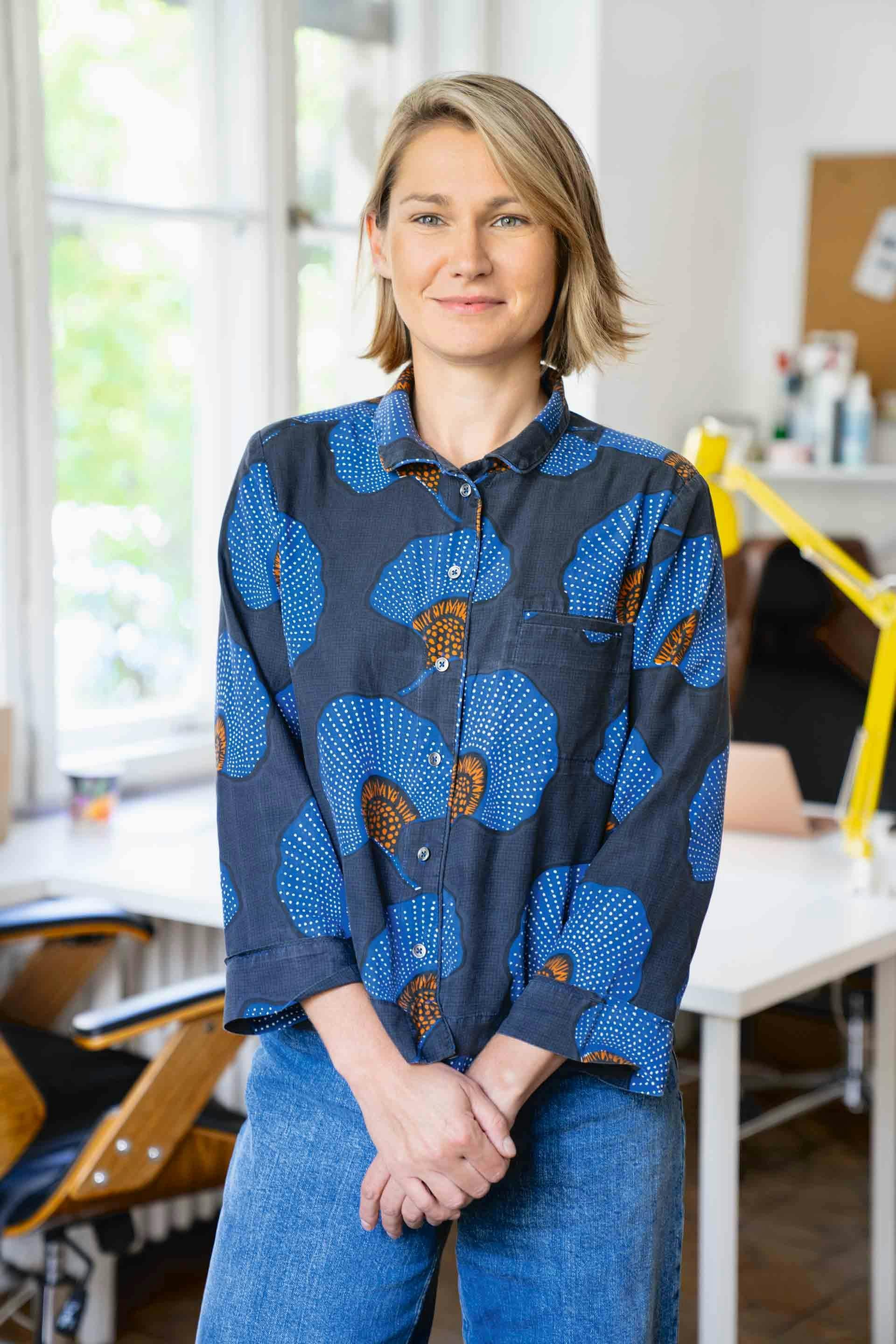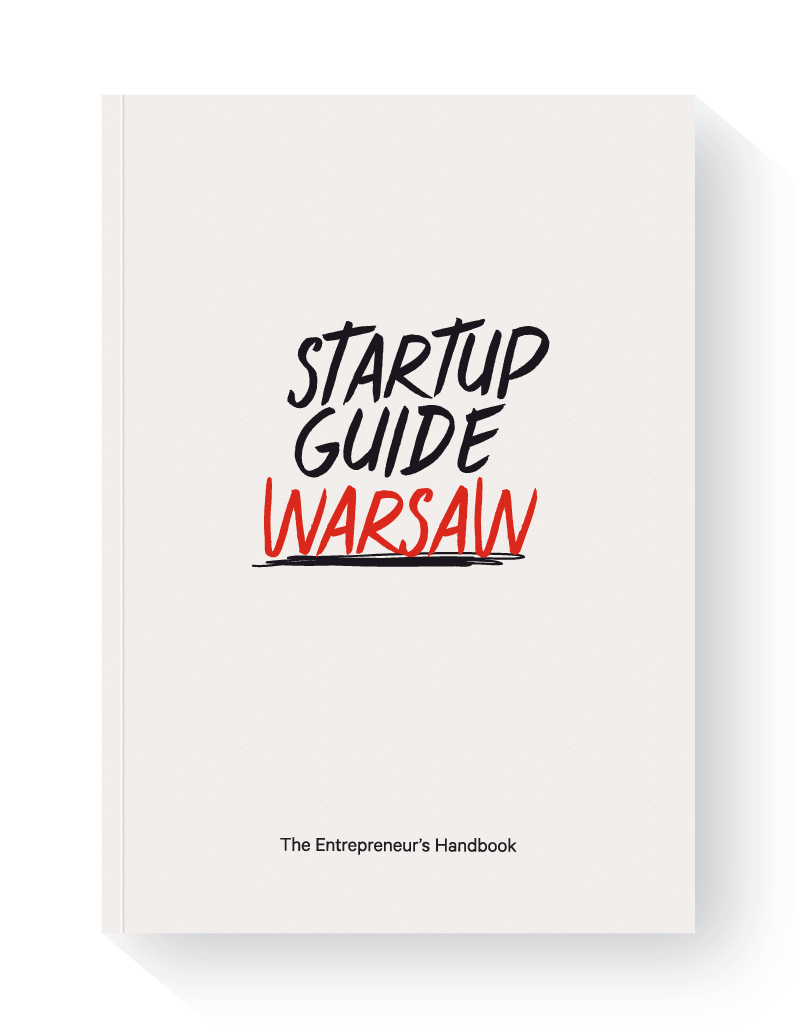Meet Joanna Drabent, cofounder and CEO of Prowly
ne of Forbes’ top European female founders, Joanna Drabent describes herself as an “accidental” PR expert whose first loves are filmmaking and art. After studying journalism and European studies at Warsaw University, a film festival internship led to her getting into media relations. She then gained experience working for PR firms before setting up her own agency, Kolko, in 2010, where the idea for Prowly was born. Since 2013, Joanna and cofounder Sebastian Przyborowski have grown Prowly into a trailblazing martech success. In 2020, they sold the company to Semrush.
How did the idea for Prowly come about?
My agency was responsible for handling media relations for Polish VC funds and startups. The startup scene had started to grow, and I was seeing brilliant ideas in other industries, technologies that were growing. And, like every entrepreneur, I wanted to improve my team’s work. Other industries like sales or marketing have had dedicated software for some time, but we had to use universal solutions like Word or Excel for media relations activities. These were in no way adapted to our professional lives, and that’s why I started thinking about such a tool. I called Sebastian – a brilliant web and app developer who I met in my first job – and we started thinking about what kind of software could improve daily media relations activities. We created an MVP and, after it launched, it turned out that the PR industry in Poland was willing to use it. It all happened a bit by accident. We’ve been running Prowly for over seven years now, and we’re still here. We employ over fifty people and operate globally from Poland, but the majority of our customers are from the US.
You weren’t tempted to try and develop the product in parallel with running Kolko?
No. When you’re running a business based on services, and you need to grow the business with people and don’t have your own product, this is a different business model. Prowly was a product company from the beginning. At the heart of our business is software that we’re developing constantly. It would be really hard to connect the two. It’s super difficult to scale an agency because the only way to grow is with people and clients. When you’re running a software business, the challenge is totally different. It was also very exciting to grow my skills.

Jonna Drabent, founder of Prowly. Photo: Daniel Król
What have you learned?
The only thing I knew when we started was how to do PR properly. With Sebastian, we were a good team, because I know the industry well. I had enough of a network in Poland to get fast effective feedback. Sebastian was head of product from the beginning, and this connection was very good and is still working. Without this combination of skills, it would be really hard to succeed. Regarding the skills I have acquired, it’s everything connected with scaling a software business. I’ve learned there’s no secret sauce to make your company successful. Of course, you need to be hard working, have a strong personality and be patient. This kind of attitude, with a bit of luck, and a willingness to experiment and learn from mistakes, has helped us grow.
What competition do you face?
In Poland, there was one competitor when we started. Back then, we never thought we’d be able to grow Prowly on a global scale. We thought we would operate only in Poland. When it comes to the global market, there are lots of interesting players. It’s growing rapidly. Considering the whole martech market, PR software is kind of niche, but there are very strong competitors, especially in the US.
You tried and failed to launch in the US. Why was that?
We had a traditional mindset back then. There wasn’t a lot of experience we could use locally, because there weren’t many SaaS companies operating globally. We thought we couldn’t sell Prowly from Poland because of the language barrier, time difference, etc. But when you’re running a software company, you’ve got remote in your DNA, and you don’t need headquarters in San Francisco to sell effectively. But that was not our mindset in the beginning. We hired several people to grow our business in the US, and we failed because of lack of experience. We didn’t have tested methodologies to scale our business that could be translated from the local to the US market. After three or four months, we decided to roll back and focus on creating internal processes, scaling the business and translating those processes outside Poland, and it turned out to be a successful approach. Now, after a few years, over fifty percent of our customers are based in the US. The Polish market is less than twenty percent. We’re selling everywhere, from South Africa to Asia, North and South America, but the highest growth is in the US, and we do it all from here.
When you’re running a software company, you’ve got remote in your DNA, and you don’t need headquarters in San Francisco to sell effectively.
What challenges did you face in the early days?
Funding was difficult because, in the last six years, I’ve become a wife and double mom. During my first pregnancy, we were closing one of the investment rounds in Poland. That was a big challenge because I felt I needed to convince the investor that I would be fine with being a mother and running a business, and they wanted me to translate such declarations into the investment agreement. That was hard because I don’t feel I need to prove anything to anyone. But I wasn’t that self-confident then, and I had some internal struggles. Finally, we closed the round and I proved to myself and the investor that my intuition was right.
How is it being a woman in a very male-dominated field?
Except for this, I haven’t had any bad experiences. I learned entrepreneurship from my father, who taught me to see the world through the prism of challenges. Opportunities, not barriers. I don’t consider I’ve struggled more because I’m a female founder. I’m quite stubborn and I like to act and follow my intuition, and when I learned that it works, I felt more self-confident. I believe everything comes from mindset. It’s about not limiting yourself with “since I’m the woman, I will have it harder.” If you think like this, you will see barriers everywhere.
Did you ever wonder if Prowly was going to make it?
I never felt we wouldn’t make it; together with Sebastian, we call it a sense of survival. There were lots of moments we could say, “Okay, I’m done,” without blaming ourselves. But we always had this strong belief that we need to succeed at some point. The biggest milestone was scaling outside Poland, because it took around two years to build the process for acquiring leads, and to grow our skills with closing deals, improving the app to sell more automatically, etc. There wasn’t one reason we succeeded. It was a combination of experiments, starting from finding product market fit in the US through to optimizing the sales funnel, customer success, and helping our customers grow with our product.
I learned entrepreneurship from my father, who taught me to see the world through the prism of challenges. Opportunities, not barriers.
You’ve landed some pretty big-name customers. Which are you most proud of having signed?
Spotify. That was the first recognizable customer. We started cooperating with them locally and then expanded in different markets. That was a big milestone because we connected the announcement with the launch of our new product we wanted them to use.
How did the Semrush exit come about?
That’s another interesting story that happened by accident. In 2019, we were not looking to exit because we were in good shape. Semrush reached out to me to talk about business cooperation opportunities. They were looking for a PR software company that would fit into their product portfolio. After several calls and meetings with the team behind Semrush, our eyes were opened to the possibility of further development under the umbrella of one of the largest martech SaaS tools in the world. The whole process took a long time, over one year. In the meantime, I gave birth to my second child and the WHO announced the pandemic, and Poland and the US imposed lockdowns. That’s why it took so long. But I felt comfortable because we didn’t feel we needed to do it. We stayed calm and moved forward. In the meantime, we handled due diligence remotely. I will never forget scanning documents from my bedroom with two children with me. At the end of the day, we consider it an amazing opportunity to benefit from the experience of someone who has been where we were and to have the chance to develop our tool as a standalone brand and product in a direction that seemed natural for us.
So what’s next?
Not much has changed. We stay as a standalone brand and entity, I’m still Prowly’s CEO. We’re now able to grow Prowly using the resources Semrush has opened up to us: experience and skills, as well as technologies to build other features connected with measuring the effectiveness of PR work. Our goal is to become an all-in-one PR solution. I’m super happy and excited that we can work on achieving this with such significant resources.
This article is included in Startup Guide Warsaw, alongside more founder stories and expert insights. Order your copy now!
Written by Kate Williams
Repackaged by Anastasia Ilcov
Photography by Daniel Król

